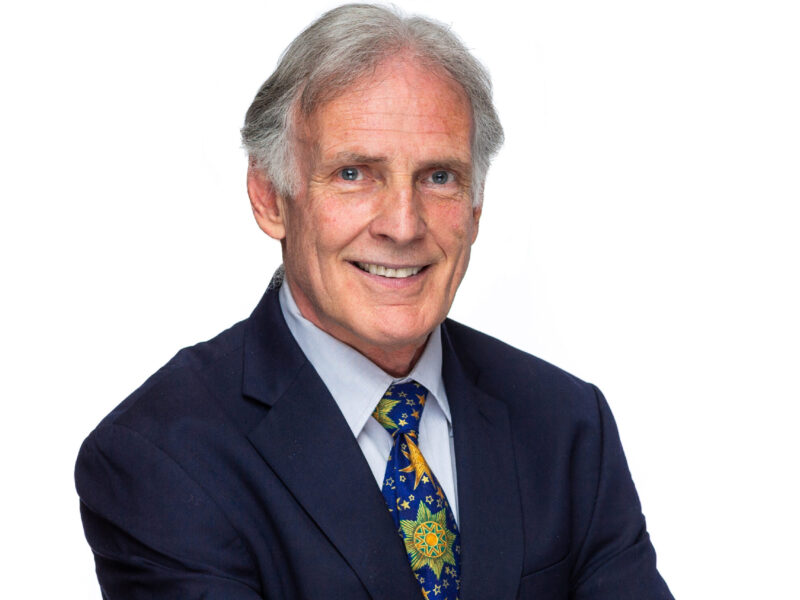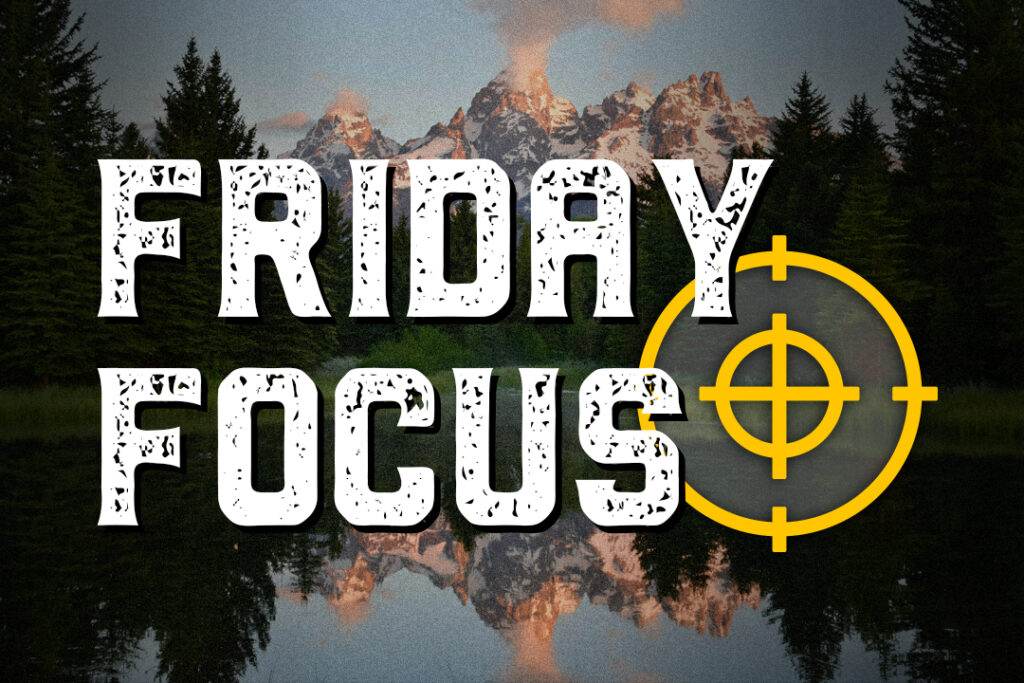FRIDAY FOCUS: Benefits, Risks of Legal Psychedelics Spark Debate
Expert: Scientific research is crucial to understanding how hallucinogens could treat mental health problems
- Published In: Other News & Features
- Last Updated: Oct 13, 2023

Jim Grigsby, a professor at the University of Colorado, Denver, is a co-leader of a groundbreaking study of psilocybin-assisted therapy to treat psychiatric and existential distress in people with late-stage cancer. (Courtesy photo from Jim Grigsby)

By Ernest Beck
For a recent Word on Drugs column, I wrote about the mainstreaming of psychedelic drugs and how more Americans are experimenting with powerful substances such as psilocybin. At the same time, researchers — including at the University of Wyoming — are exploring both the potential benefits and possible risks of using these drugs to treat serious mental health conditions, such as PTSD, substance use disorder and depression.
The legalization of psychedelics is also gaining momentum, with Oregon decriminalizing such drugs in 2022. In Colorado, a ballot initiative approved last year decriminalized adult-use personal possession of psilocybin, the psychedelic substance in so-called magic mushrooms, but did not allow retail sales. It also called for creating state-regulated “healing centers” to provide treatment using psychedelics, and to train and license therapists.
But as these substances become more widely available, are states moving too fast? And how will such drugs, which are not approved by the Food and Drug Administration, be regulated and monitored in clinical settings?
To answer these questions and more, I spoke with Jim Grigsby, a professor at the University of Colorado, Denver, who teaches cognitive neuroscience and neuropsychology. He is also co-leader of a groundbreaking study of psilocybin-assisted therapy to treat psychiatric and existential distress in people with late-stage cancer.
Grigsby spoke with Wyoming Truth about how decriminalization is unfolding in Colorado, its impact on patients and practices and the challenge of making psychedelics safe and reliable for all users. What follows are excerpts from the interview.
Tell us about the new study you are co-leading and its possible implications for the wider use of psychedelics.
Grigsby: We’re investigating the effect of synthetic psilocybin, rather than what’s found naturally in mushrooms, on late-stage cancer patients who are receiving end-of-life palliative care. We were turned down three times by the National Institutes of Health before we finally secured funding for what will be the largest clinical trial of its kind. It’s a five-year study with New York University involving around 200 patients. One goal will be to determine whether the drug helps make patients more comfortable during this difficult time.
Your study takes a cautious, long-term approach to better understanding the impact of psychedelics at a time when there is a rush to commercialize these substances. Are psychedelics being overhyped?
Grigsby: Yes. Some things we do know—for example, that one benefit of MDMA, the psychedelic-like stimulant also known as Ecstasy, is that it can be used to treat trauma. But we can’t yet say the same about many other things being proposed, along with their limitations. The power these drugs have to help people might also make them equally responsible for bad outcomes. The scientific research on psychedelics goes back to the 1950s when the drugs were entirely illegal. The current research looks promising, but there are still a lot of “ifs.”
Colorado moved into unchartered territory when it decriminalized psychedelics. Were you in favor of the proposition, which only won by a narrow margin?
Grigsby: I was ambivalent because [the proposition] included decriminalizing some substances that we don’t have sufficient research on, such as ibogaine, a naturally occurring psychedelic found in plants with hallucinogenic properties. Ibogaine has shown some potential to treat substance use disorders, but it can be very intense, with the highs lasting as long as 48 hours. Quite honestly, it scares me. I was also concerned that it did not include regulations for the proposed healing centers and for training and credentialing therapists, which is underway now.
In the meantime, an unregulated gray market is flourishing, as many unlicensed practitioners offer costly treatments. Is Colorado implementing decriminalization in the right way?
Grigsby: I’m not sure what will happen with the regulatory process. Many people are worried about the commercialization of psychedelics, and if it will follow what happened in Colorado with legalized marijuana. The cannabis industry is making gobs of money, and some see psychedelics going in the same direction. They favor an entrepreneurial approach. Just look at all the clinics that are offering therapy with ketamine, a short-acting anesthetic that is not psychedelic but produces a hallucinogenic experience. Some people running psychedelic clinics have integrity. But others are targeting the wealthy and charging thousands of dollars for a single mushroom session. This suggests they don’t understand how these drugs are used or could be used. What they have in mind is the recreational cannabis model, and that is very different.
What is the outlook for psychedelics in the next few years?
Grigsby: I see decriminalization moving ahead, assuming that nothing terrible happens in Colorado or elsewhere. Other states may follow this model, because lots of people with money are pushing it onto ballot initiatives. There will inevitably be some negative outcomes with individuals and cases of bad practices involving unqualified people. I am concerned about people who might get hurt. This would create problems and be sensationalized. The headlines might lead to a political backlash that dampens momentum and brings us back to the ’70s war on drugs when everything was shut down. I hope this won’t happen.
What can we do to ensure that scientific research leads the way in this field?
Grigsby: Some of this can be controlled if the regulations work and stop people from egregious practices. We have to develop clinical applications for those who benefit from the drugs and also for those who don’t get much out of it. The role of science is crucial. We have so much to learn about the therapeutic value of psychedelics, and I am afraid that if things go the wrong way, it might become more difficult to justify requests for further research funding. This would be unfortunate, because it is an exciting time to work in this field. There’s a lot of enthusiasm and so much cool stuff happening.













